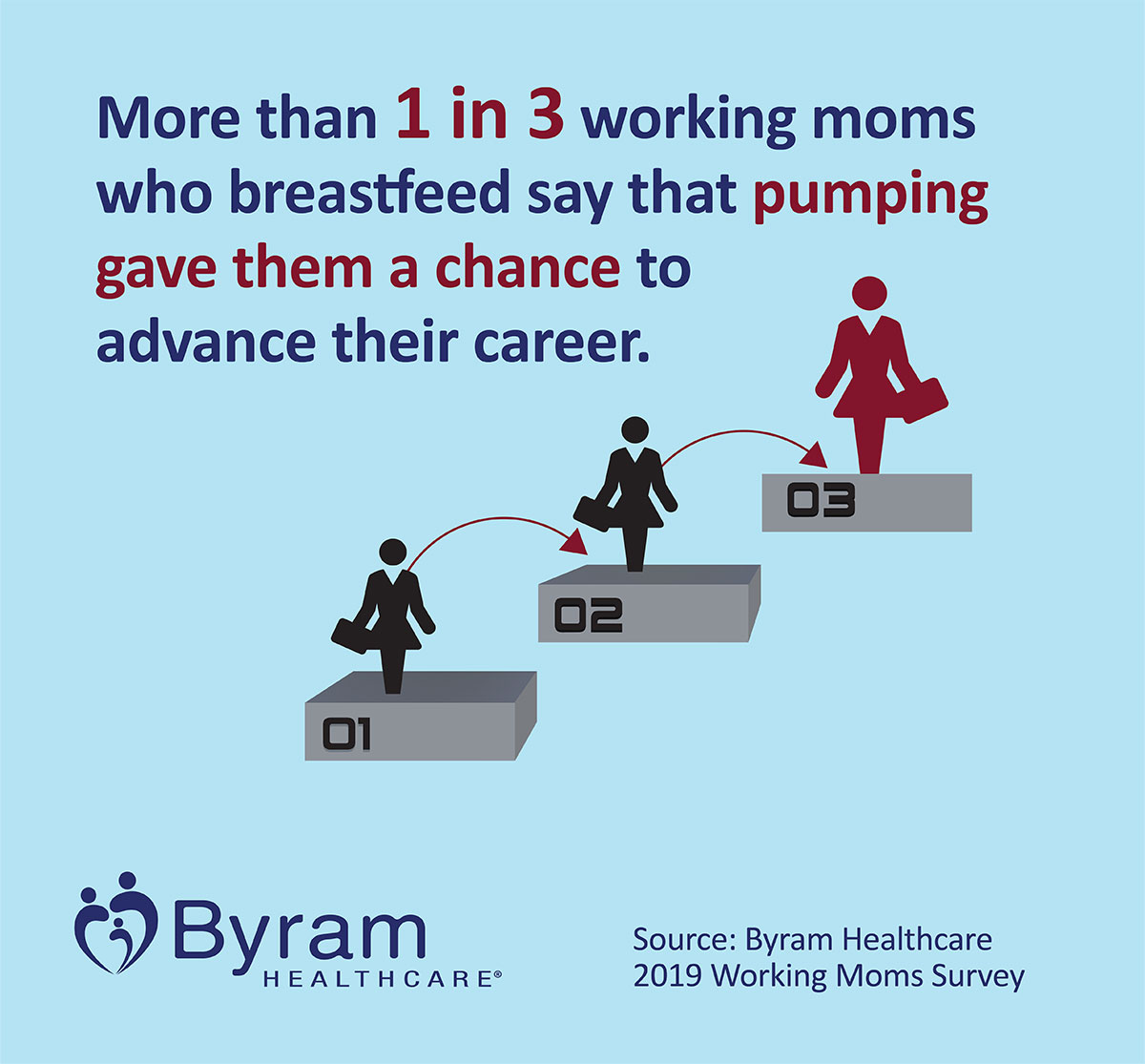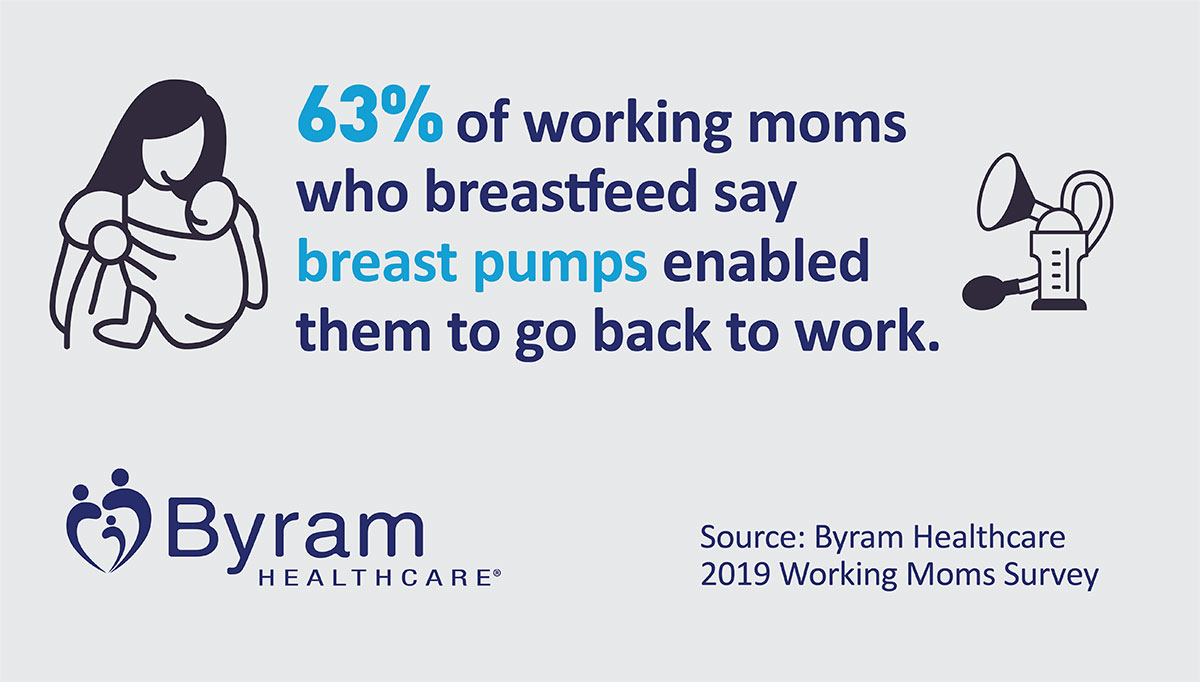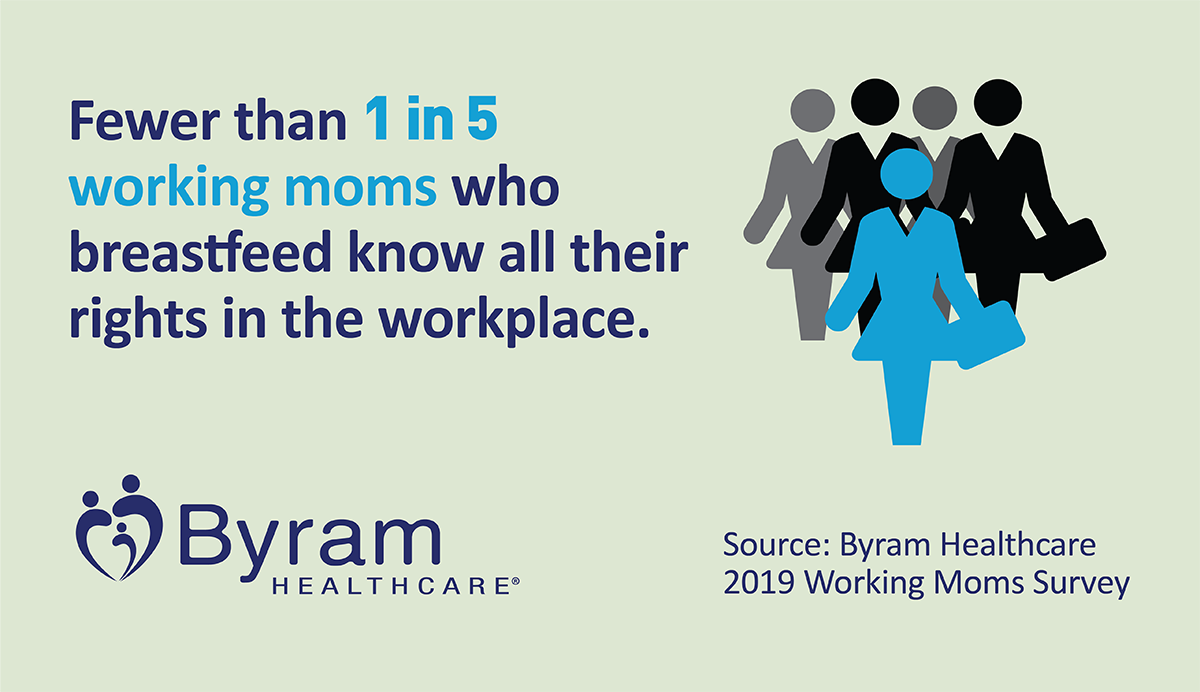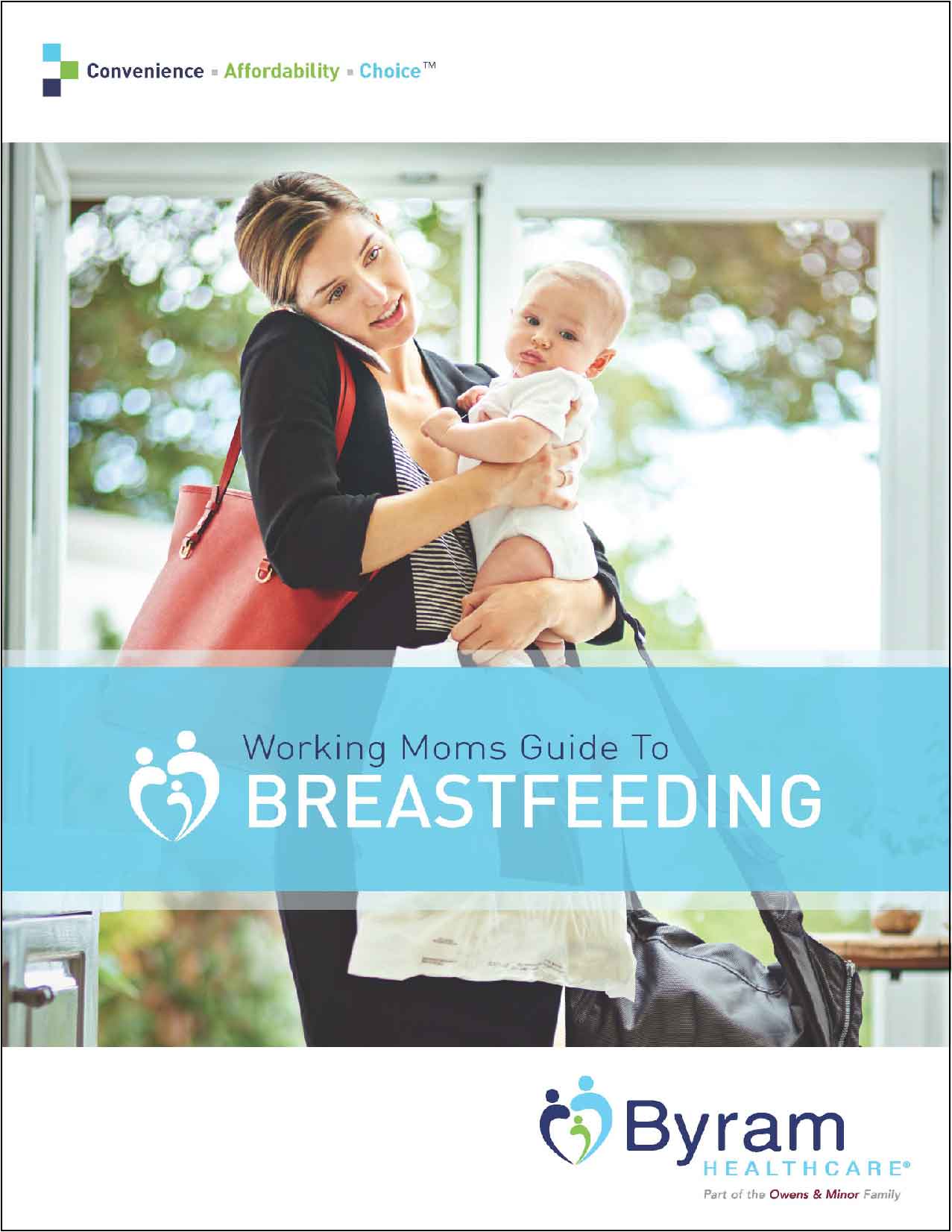Fewer than 1 in 5 Working Moms who Breastfeed Know their Rights
It’s an alarming number, but it’s true. That means only about 18% of working moms who breastfeed know what they can legally and rightfully do according to state and federal laws and 82% don’t know their breastfeeding rights. This number was brought to light after a survey was commissioned by Byram Healthcare Centers, Inc. and distributed by Wakefield Research. It polled 1,000 working mothers in the United States who were either currently breastfeeding or recently breastfed. The survey, conducted by Wakefield Research, has led to some alarming realizations. Primarily, these findings confirm that we need to stop putting such a stigma on breastfeeding and instead, focus on supporting women’s rights.

Another paramount detail about this survey was that it was the first one to ask working moms how much they depend on breastfeeding equipment and support. In fact, close to 95% of the mothers surveyed said that they’ve used a breast pump. Most of these women commented on how using a breast pump has given them a lot of benefits, especially in their daily lives. It allowed 63% of new moms to return back to work and 36% reported how breast pumps gave them the opportunity they needed to advance their careers while balancing motherhood. For many moms, returning to work after pregnancy is an important part of caring for both your baby and yourself.
While the use of breast pumps has made new mom’s lives easier, the advantages aren’t used or even completely realized. That’s because close to half of the mothers that said they’ve used a breast pump weren’t aware that this also entitled them to using a room at their workplace, with privacy, to pump—for up to a full year after giving birth. The importance of understanding a woman’s rights, their full rights, when breastfeeding is paramount. Since many companies or employers don’t immediately give new moms what they need, we need to do a better job of making sure they know what they’re entitled to so they can ask for it if it’s not provided. Some other rights that a breastfeeding woman is entitled to at work include access to running water and even a refrigerator for proper milk storage.
Protecting the rights of breastfeeding mothers wanting to return to right helps show them that their company supports them, welcomes them back, and gives them the opportunities they need to successfully work towards their goals. It creates a workplace culture that helps breed opportunity rather than limit growth. As a new mom returning to work, we want to encourage you to be a boss! Make sure that you and your employer both understand the parameters and follow federal and state regulations.

This is especially important in our world today, where gender inequality continues to be problematic. When women don’t know their rights, they’re more likely to be taken advantage of. For instance, 53% of surveyed women said that they had their hours cut or workload altered, only because they were new moms. Not one of them asked for this change, nor did they actually want it. This starts to breed a culture that shows women that they’re not supported, which then starts to change internal attitudes and expectations and hurts overall productivity levels. Putting such strong stigmas on new moms returning to work leads not only to frustration, but embarrassment and even alienation. When the workplace doesn’t show support for new moms, some employees may start to make rude comments or even assert their opinions on when and where they think new moms should be pumping. Life for new moms is already stressful; they don’t need new challenges and hurtles to overcome at work on top of caring for a newborn. This is especially true considering that almost every single mom surveyed – 96% of them – said that they always multitask with either work tasks or on their lunch break when pumping.
Working Mom’s Guide to Breastfeeding
That’s why, at Byram Healthcare, we’re here to help new and expectant moms fully understand their breastfeeding rights how they can gain access to a free breast pump through their insurance providers. We’ve also put together a comprehensive toolkit – “A Working Mom’s Guide to Breastfeeding: Your Rights, Your Success” to help new or expecting mothers learn everything they need to know about their breastfeeding rights.
When you understand your rights fully, you know when you can and should file complaints. The fact of the matter is that it’s illegal for companies to discriminate you for your right to breastfeed your baby or pump at work. The parameters are different for each state, but for most, the law states that employers with over 50 employees must provide “non-exempt” employees with enough time and a private space for them to pump. This private space does not mean a bathroom, but rather, an appropriate place on-site for you to do what you need without interruption.
Most insurance companies cover an array of services for new or expecting breastfeeding moms. In addition to the free breast pump, you’re eligible to receive equipment and supplies often at no cost. You can even gain access to lactation support and other benefits. To find out more about receiving a no-cost breast pump through insurance, visit Byram Healthcare.
Once you understand your rights, and the fact that you can receive a free breast pump, it’s important to do some research and find the best breast pump possible for you and your preferences. With all of the information floating around the Internet, this can be difficult. To learn more about the types of breast pumps available, their associated features, and what types of systems they use, check out Byram’s toolkit.
About Byram Healthcare
Byram Healthcare is a national leader in disposable medical supply delivery and is committed to tackling challenging, ever-changing healthcare problems. Byram is part of the Owens & Minor family, a global healthcare solutions company that delivers significant and sustained value for healthcare providers and manufacturers across the continuum of care.






